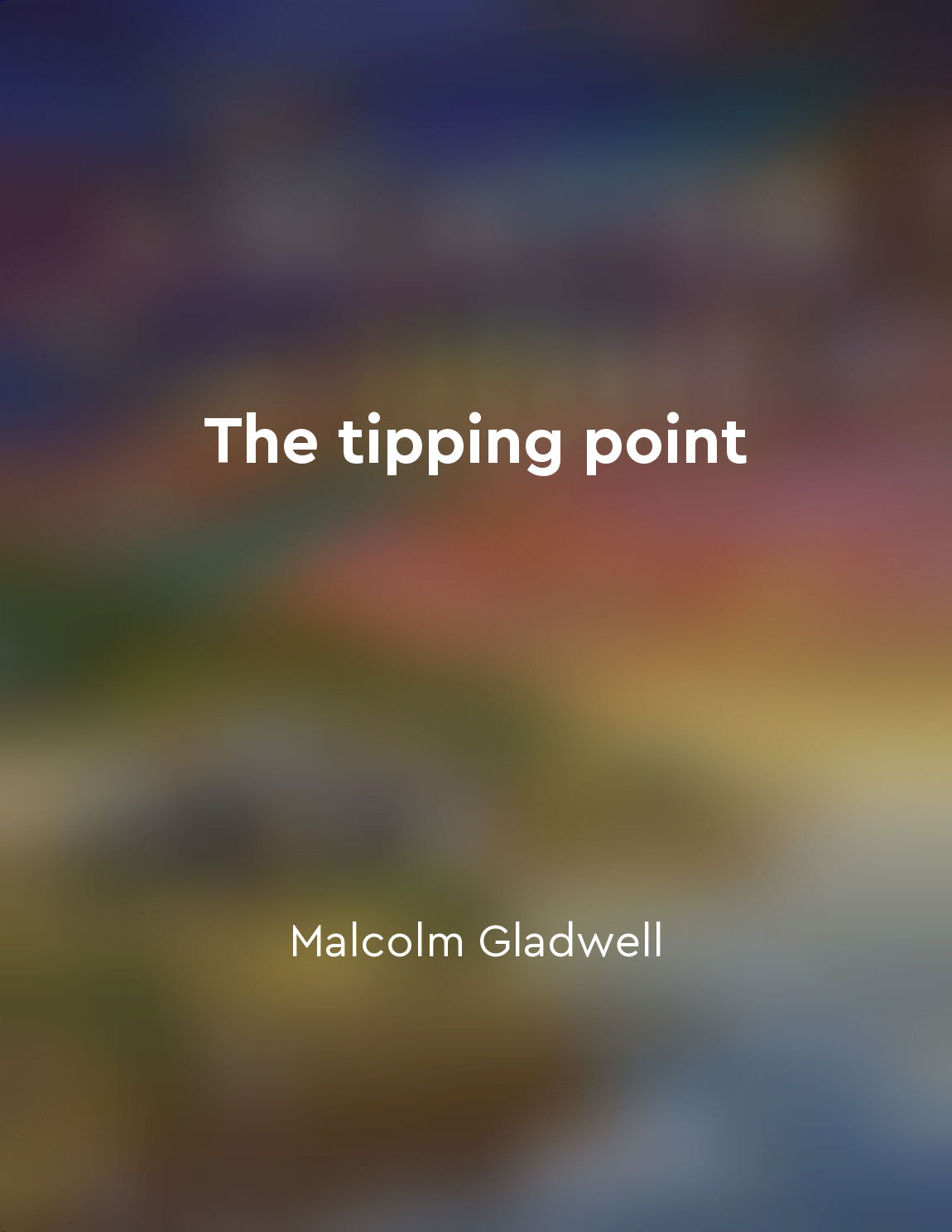Social epidemics can be studied like diseases from "summary" of The tipping point by Malcolm Gladwell
The idea that social epidemics can be studied like diseases is a powerful concept that sheds light on the way trends and behaviors spread through a population. Just as diseases follow a pattern of transmission and infectivity, social epidemics exhibit similar characteristics that can be analyzed and understood. By viewing social epidemics through the lens of a disease model, we can identify key factors that contribute to their spread. These factors include the contagiousness of an idea or behavior, the context in which it is introduced, and the individuals who are most influential in promoting it. Just as a disease requires a susceptible population to spread, social epidemics rely on a receptive audience to gain traction and momentum. Moreover, the concept of studying social epidemics like diseases highlights the importance of identifying "super-spreaders" or individuals who have an outsized impact on the transmission of an idea or behavior. These influential individuals play a critical role in accelerating the spread of a social epidemic and can be key targets for intervention or prevention efforts. In addition, understanding social epidemics as akin to diseases underscores the need for targeted strategies to control their spread. Just as public health measures are used to contain outbreaks of infectious diseases, interventions can be designed to limit the reach of harmful social epidemics and promote positive trends within a population.- The analogy between social epidemics and diseases offers a fresh perspective on the dynamics of societal change and highlights the interconnectedness of individuals and communities in shaping our collective behaviors and beliefs. By applying principles from epidemiology to the study of social phenomena, we can gain valuable insights into the mechanisms underlying the spread of ideas, trends, and behaviors in our society.
Similar Posts
Say "Yes" more often
The concept of saying "Yes" more often is a powerful strategy for influencing and persuading others. By adopting a more positiv...
By understanding the power of social influence, we can better navigate the complexities of human interactions
Understanding the power of social influence allows us to navigate the complexities of human interactions with greater ease. Whe...
Scarcity: People desire what is limited or scarce
Scarcity holds a remarkable power over us. Not only do we desire what is scarce, but the mere idea that something is difficult ...
Monitor feedback to improve your strategy
To succeed in the digital world, it is essential to pay attention to the feedback you receive. Whether it is praise, criticism,...
Social capital can promote economic development
Social capital refers to the networks of relationships among people in a society that allow for cooperation and collaboration. ...
The new power values of horizontalism challenge traditional power structures
The traditional power structures are facing a formidable challenge from the rising force of horizontalism. This new power dynam...
Making ideas practical and useful can increase their contagiousness
To increase the contagiousness of an idea, it is essential to make it practical and useful. When an idea is practical, it is ea...

Dark psychology can be used for malicious purposes
The manipulation tactics outlined in this book serve as a reminder of the potential dangers lurking within the realm of dark ps...
Socialization begins at an early age
The process of socialization begins when we are just infants. Even before we can speak, we are absorbing information from the w...


